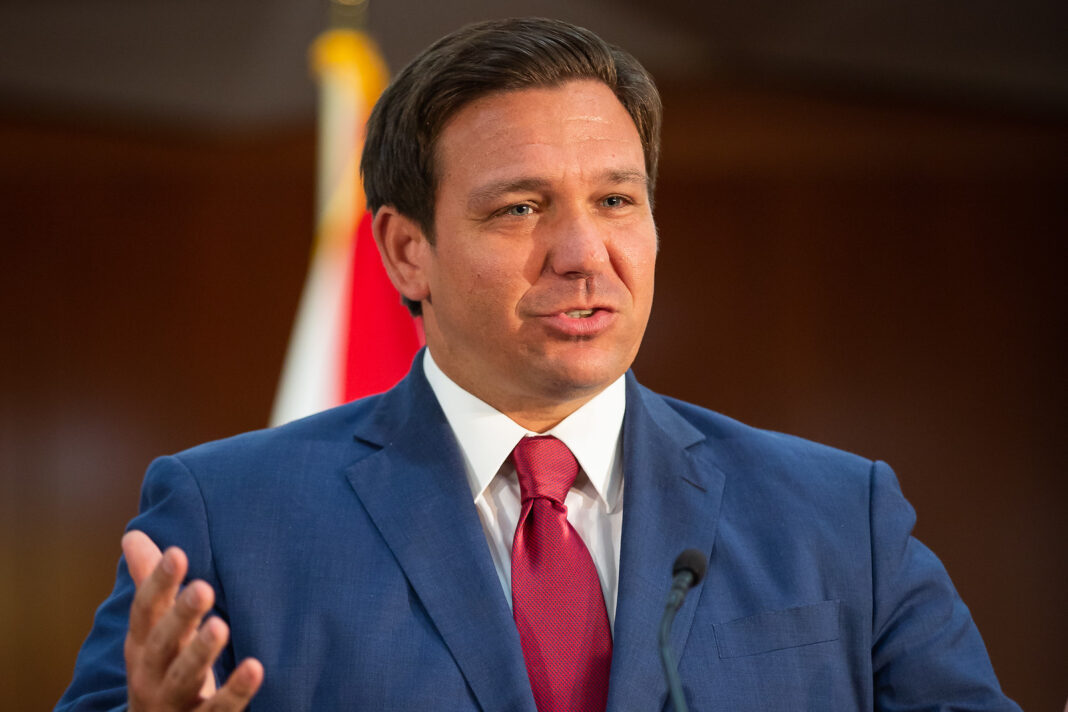On Monday, Governor Ron DeSantis signed three bills to further solidify Florida’s position as the number one state for higher education and further Florida’s goal of becoming the number one state for workforce education by 2030. The Governor signed Senate Bill (SB) 266 to prohibit institutions from spending federal or state dollars on discriminatory initiatives, such as so called “diversity, equity, and inclusion (DEI)” programs. The Governor also signed House Bill (HB) 931 to prohibit Florida’s public institutions from requiring students, faculty, or staff to take political loyalty tests and signed SB 240 to expand workforce education programs and increase access to career and technical education (CTE) programs.
“Florida has ranked number one in higher education for seven years in a row, and by signing this legislation we are ensuring that Florida’s institutions encourage diversity of thought, civil discourse, and the pursuit of truth for generations to come,” said Governor Ron DeSantis. “Florida is taking a stand for empowering students, parents, and educators to focus on creating opportunities for our younger generations. I am happy to have worked with the legislature to get this important legislation signed, sealed, and delivered.”
“More than a decade ago, Florida began the transformation to link education to the realities and opportunities of the economy. In 2013, the Legislature passed the Career and Professional Education Act, which began the process of promoting industry certifications in K-12 education, with financial incentives for schools that help students learn skills that directly lead to jobs. A decade later, Florida transformed our workforce system, making it easier for consumers to access services and career planning and to register for job training,” said Senate President Kathleen Passidomo. “The REACH 2.0 Act, signed today by Governor DeSantis, builds on this tremendous progress by creating additional partnerships between local schools and businesses, expanding opportunities for students to gain on-the-job experience in meaningful, high-paying fields needed in our growing communities.”
“Florida’s top-ranked state college and university system, with a strong commitment to academic excellence, recognizes the importance of academic freedom and upholds this principle as a fundamental value of its educational mission,” said House Speaker Paul Renner. “The bills signed today promote a supportive environment where faculty and students can explore and express ideas freely without fear of censorship, retribution, or discrimination. Academic freedom is a cornerstone of higher education, as it allows for the free exchange of ideas and the pursuit of knowledge and truth.”
“Florida’s #1 ranked higher education system must be accountable as good stewards of the significant investment by Governor DeSantis and the Florida Legislature, as well as protect the best interests of our students,” said Ray Rodrigues, Chancellor of the State University System of Florida. “Re-orienting our distinguished universities to missions that treat people as individuals, that reward merit and achievement, and center on recruiting excellent faculty while creating the talent pipeline necessary to fuel Florida’s future is critical to our upward trajectory.”
“When our kids graduate, whether they go on to be a biologist, a physicist, a marine biologist, and they go apply for a job, employers are going to look at them in two seconds and say, ‘These kids have a beautiful foundation’,” said Richard Corcoran, Interim President of New College of Florida. “But none of that happens without great leadership. Leadership is everything. And this state, whether it is in higher ed, K-12, or the environment, you name it, we have been blessed with having the greatest Governor in the history of this state, if not the nation. Thank you, Governor DeSantis.”
SB 266 takes several steps to prevent woke ideologies from continuing to coopt our state universities and state colleges. The bill prohibits higher education institutions from spending public dollars on initiatives that promote dangerous political and social activism, such as DEI initiatives. This bill prohibits programs, majors, minors, curriculum, and general education core courses that violate Florida law regarding prohibited discrimination or that are based on theories that systemic racism, sexism, oppression, and privilege are inherent in the institutions of the United States and were created to maintain social, political, and economic inequities. Additionally, this bill will require that our university presidents renew their ownership of and accountability for hiring, promoting, and when necessary, disciplining faculty.
This legislation expands higher education opportunities at Florida’s largest universities by establishing or expanding specific area of study colleges within the universities. This includes:
- Establishing a pathway for the Hamilton Center for Classical and Civic Education at the University of Florida to be established as a college within the university.
- Renaming and redefining the goals of the Florida Institute of Politics at Florida State University, now the Florida Institute for Governance and Civics.
- Providing additional authorities to the Adam Smith Center for Study of Economic Freedom, including the ability to hire faculty, develop curriculum, and fundraise.
- Establishing the Institute of Risk Management and Insurance Education at the University of Central Florida.
HB 931 puts an end to political filters that are increasingly used to require political statements and ideological attestations by faculty and students in hiring, promoting, and admissions. Additionally, this bill requires state universities to establish an Office of Public Policy Events, which will host events and speakers from a range of diverging opinions on public policy issues.
SB 240, also known as the Reimagining Education And Career Help (REACH) 2.0 Act, expands workforce education programs and increases access to career and technical education programs from middle and high school through our state’s 48 technical colleges, 28 state colleges, and local CareerSource offices. In 2021, the Legislature enacted the REACH Act to make a fundamental shift in how Florida aligns its workforce investments, to tear down silos, and shift workforce education to a system of meeting workforce demands with a supply of well-trained talent. SB 240 builds on that success to further Florida’s efforts to support workforce education.
SB 240 expands the REACH office to create more apprenticeship and pre-apprenticeship programs across the state while also authorizing state universities to create workforce education programs using on-the-job training. These “work and learn” programs for students will allow them to graduate without heavy student loan debt. Additionally, this bill will expand the internship tax credit program to include businesses that employ student apprentices and pre-apprentices.
At the middle and high school level, SB 240 requires each school district to ensure that every high school student has access to at least one work-based learning opportunity. The bill also requires school districts to ensure that each high school hosts a career fair during the school year and will allow middle school students who want to continue their CTE education in high school to attend a high school that offers the program regardless of zip code.
The Governor also announced his support for budget items included in the General Appropriations Act (GAA) for 2023 which make strategic investments to support the educational excellence of our 12 state universities and 28 state colleges:
- The GAA includes a new $100,000,000 provided for the State University System Performance Based Recruitment and Retention Incentive.
- The GAA includes $645,000,000 provided for State University System Performance Based Incentives, an $85 million increase over last year.
- The GAA includes a $100 million base funding increase for State Colleges to support the 28 Colleges’ further alignment with high demand workforce pathways.
- Between the February Special Session and the 2023 GAA, $50M in increased funding for New College that will allow for scholarships, more faculty, and massive campus improvements to help restore New College’s status as Florida’s state honors college.

















